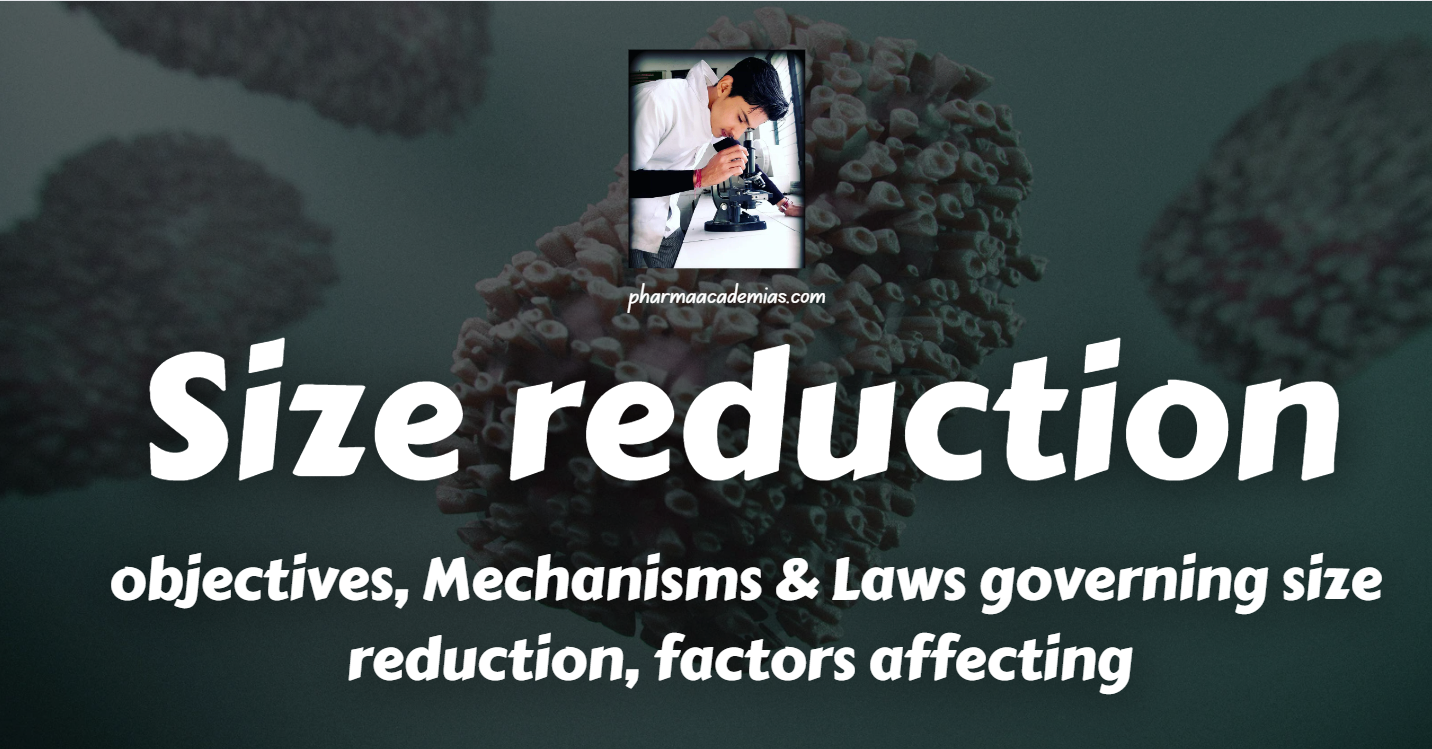Size reduction: objectives, Mechanisms & Laws governing size reduction, factors affecting
Size reduction is a process employed in various industries to reduce the dimensions of particles or materials, resulting in smaller pieces or particles. This reduction in size can serve multiple purposes, ranging from improving material handling to enhancing reactivity in chemical processes. The methods used for size reduction are diverse and can involve mechanical forces, … Read more










